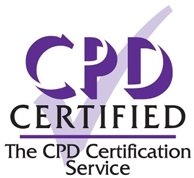How To Give And Receive Feedback
Click here to download a PDF version
of the “How To Give And Receive Feedback” management tip
Improve Your Management Skills & Receive
A PD Accreditation At The Same Time

| Course | Management Skills Award |
| Body | Continuing Professional Development Accreditation (CPD) |
| Course Length | 5.5 Hours (work through as quickly or as slowly as you like) |
| Format | Online |
| Study | Self-study – take the sessions when you like |
| Assessment | End of programme online assessment (30 multiple choice questions) |
| Timescales | Have up to 13 weeks to complete the course |
Receive A FREE Sample Session

ENTER YOUR DETAILS BELOW TO RECEIVE
“Emotional Intelligence – The Added Managerial Advantage”
Course Content
Session 1: Essential Communication Skills
You will learn:
- A definition of communication in business
- Examples of how people see things from different perspectives
- The skills of face-to-face communication
- A model for communicating effectively
- Using your satellite navigation system of communication
- How matching and mirroring creates bonds between people
- How pacing and leading creates progress in relationships
- How filters affect our belief systems
- The effective use of deletion, distortion and generalisation filters
- The three skills in the art of persuasion
- How to express your ideas through images and emotion
Session 2: Advanced Communication Skills
You will learn:
- A definition of advanced communication and how advanced communicators differ from the norm
- How we communicate thoughts from ourselves to another person and how that process could go wrong
- How our senses are used to assimilate information
- How information is monitored and assessed as we receive it and interpret it
- What we do with information that we receive
- How to identify the thinking patterns of other people by watching their eye movements
- The words that advanced communicators use to send and receive messages
- How ‘artfully vague’ language can create a higher level of understanding between people
Session 3: Building High Performance Teams
You will learn:
- Why teams sometimes fail to work effectively
- How to assess your team’s strengths and development areas
- Why long term goals are essential for highly motivated teams
- The Tuckman model of team development
- The Situation leadership model and how it fits with team development
- The seven characteristics of high-performing teams
Session 4: Effective Coaching Skills
You will learn:
- A definition of coaching for businesses
- Two tried and tested coaching models
- How to apply the coaching continuum to assess when and how to coach effectively
- How to ensure coaching sessions are effectively applied by the coachee
- How to give quality feedback when coaching
- The skills needed to coach in a team environment
- The skills of great coaches, including questioning and listening, reframing and clarification
Session 5: Delegation Skills
You will learn:
- A clear definition of delegation’s purposes and benefits
- Why some managers fail to delegate effectively
- Five must-ask questions for yourself before delegating
- What skills the person needs in order to be delegated to
- A series of ideas on how to delegate effectively
- Some situations that you might encounter, like “I don’t have time to do this”
- Why some people are unwilling to accepted delegated responsibility and what to do about it
- What to do after you’ve delegated tasks
- How to evaluate the results of delegated tasks
- The next steps to delegate effectively
Session 6: Emotional Intelligence
You will learn:
- What exactly EQ is, and how it’s defined in business
- Several business cases that clarify the results of Emotional Intelligence
- How the brain is set up to use emotions and the basics of understanding the emotional brain
- The five stages that make up emotional intelligence
- The competencies for effective application of EQ
- How to put highly-developed EQ skills into practice
Session 7: Leadership Styles
You will learn:
- Four styles that are used in business today: Autocratic, Democratic, Bureaucratic and Charismatic
- The advantages, disadvantages and uses of each of the styles
- Six ’emotional styles’ and when to use them
- The benefits of choosing a specific style and the results you can expect
Session 8: Management versus Leadership
You will learn:
- The characteristics of a leader and a manager
- What’s the main differences are between the two
- Different facets of management at different planes of the organisation
- The concept of SuperLeadership
- Results-oriented management
- The guidelines making up situational leadership
- Different ways to improve your management and leadership styles, including developing your personal brand, emotional intelligence, developing leadership skills, inspiring, energising and encouraging others
Session 9: Managing Change
You will learn:
- How to create the future by managing change
- The stimulus-response model of change
- A real example of how change affected a whole nation
The reality of change – how Hertzberg and Maslow’s theories account for most of ourbehaviour and attitudes to change - Six questions that facilitate change
- External drivers to change, including the PESTLE model
- Methods of dealing with resistance to change
- Tips for making change a reality
- Tips for setting and communicating the vision of change
- A six-step process for driving change forward within your business
Session 10: Managing Performance
You will learn:
- Why employees would not perform adequately
- How to define the purpose, duties and responsibilities of the employee
- How to define performance goals and measurable outcomes
- How to run a performance development meeting
- How to deal with attitude problems
- What to do if performance doesn’t improve
- The benefits of performance management
- The benefits of tapping into people’s potential
Session 11: Motivation Masterclass
You will learn:
- What motivation really is
- Hertzberg’s, McClelland’s Maslow’s and Vroom’s ideas
- The drivers of employee motivation
- Why motivation is important
- The four keys to personal drive and motivation
- Putting it into practice
- Creating a vision, empowering, energising, leading and inspiring
Session 12: Effective Time Management
You will learn:
- Is it possible to manage time?
- Four principles of effective use of time
- The time matrix for effective results
- Efficient Self-management tips
- Ideas for managing email effectively
Session 13: Conflict Management
You will learn:
- What is conflict?
- How to resolve conflict
- Resolutions formats for conflict
- Constructive v Destructive behaviours
Make An Enquiry
Please call us on 0333 320 2883
02476 992486 Email us at info@managementtrainingonline.co.uk or complete our online form below with what you are looking for and what you would like to achieve and we will get back to you with a free, no obligation proposal along with the costs.

